Have you ever found yourself frustrated by an unexpected internet service outage? It's a common experience that can disrupt our daily routines, whether you're working from home, streaming your favorite shows, or simply trying to connect with loved ones. In this article, we'll explore how to effectively communicate your concerns in a letter to your internet service provider, ensuring your voice is heard. Keep reading to discover tips and a template that can help you draft a compelling complaint.
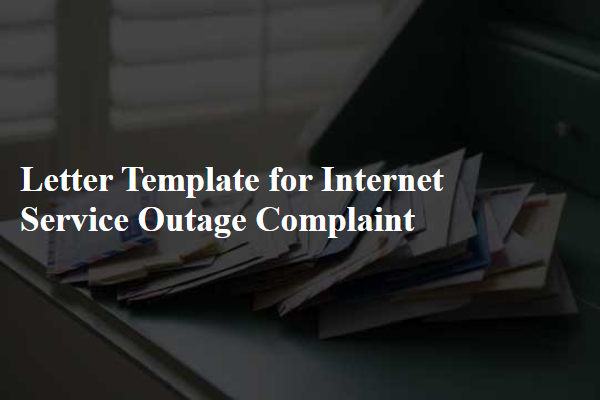
Clear identification of customer information and account details.
Persistent internet service outages can severely disrupt daily activities, especially for remote workers and students. Account details such as the unique customer ID (usually consisting of 10-12 digits), service address (including street name, city, and ZIP code), and contact phone number are crucial for accurate identification and quick resolution. Internet service providers (ISPs) are expected to maintain service reliability, adhering to contractual service level agreements (SLAs) that typically specify guaranteed uptime percentages (often 99.9%). Outages lasting over a specified duration, such as 24 hours, may warrant compensation under these agreements. Furthermore, documenting previous outage reports, timestamps, and any communication with customer support can substantiate claims and facilitate a resolution process.
Specific description and duration of the outage.
On September 14, 2023, at approximately 2:00 PM, a complete internet service outage occurred in the downtown area of Springfield, affecting residents and businesses alike. This disruption lasted for over six hours, with services only being restored around 8:00 PM. During this time, numerous customers reported inability to access critical online services, including email, streaming, and essential work-related tasks. Technical support was contacted multiple times, yet there was no clear timeline provided for restoration. This prolonged outage not only inconvenienced users but also hindered business operations in a region heavily reliant on stable internet connectivity.
Impact on personal or business activities and any financial implications.
Severe internet service outages disrupt daily activities for individuals and businesses alike. For personal users, reliance on broadband services for communication (such as popular platforms like Zoom and WhatsApp) hampers productivity and connectivity with family, friends, and remote colleagues. Business operations, especially for e-commerce platforms like Shopify or service-based providers, face significant losses due to interrupted transactions, impacting revenue streams and customer satisfaction. Financial implications may include potential loss of business opportunities, decreased customer engagement, and increased costs associated with downtime, such as employee overtime to compensate for lost working hours. Consistent outages can further lead to reputational damage, discouraging future customer acquisition and retention.
Request for compensation or service credit.
Frequent internet service outages disrupt daily activities, significantly impacting remote work and online learning. For instance, an extended outage lasting over 24 hours can hinder productivity and access to essential resources. Internet Service Providers (ISPs) often have service level agreements that guarantee a certain uptime percentage, typically around 99.9%. When outages exceed this threshold, customers may seek compensation or service credits to offset the inconvenience. Additionally, reputable ISPs such as Comcast or AT&T typically offer compensation options in their customer service policies, allowing affected users to request credits on their monthly bills following substantial disruptions in service.
Contact information for further correspondence and resolution.
Internet service outages can severely disrupt daily activities, particularly in densely populated areas like New York City, where residents rely on consistent connectivity for work, education, and entertainment. Extended outages often last several hours, leading to frustration among users who depend on services like Comcast or AT&T. The lack of timely communication regarding these outages can amplify dissatisfaction, causing customers to seek redress through formal complaints. Key entities such as the Federal Communications Commission (FCC) may also become involved in escalating cases, reflecting the significance of internet service reliability in the modern digital age. Tracking internet speed can illustrate performance drops, with average broadband speeds in the U.S. hovering around 100 Mbps; fluctuations can indicate underlying issues that warrant consumer advocacy and engagement.
Letter Template For Internet Service Outage Complaint Samples
Letter template of internet service outage complaint to customer support.
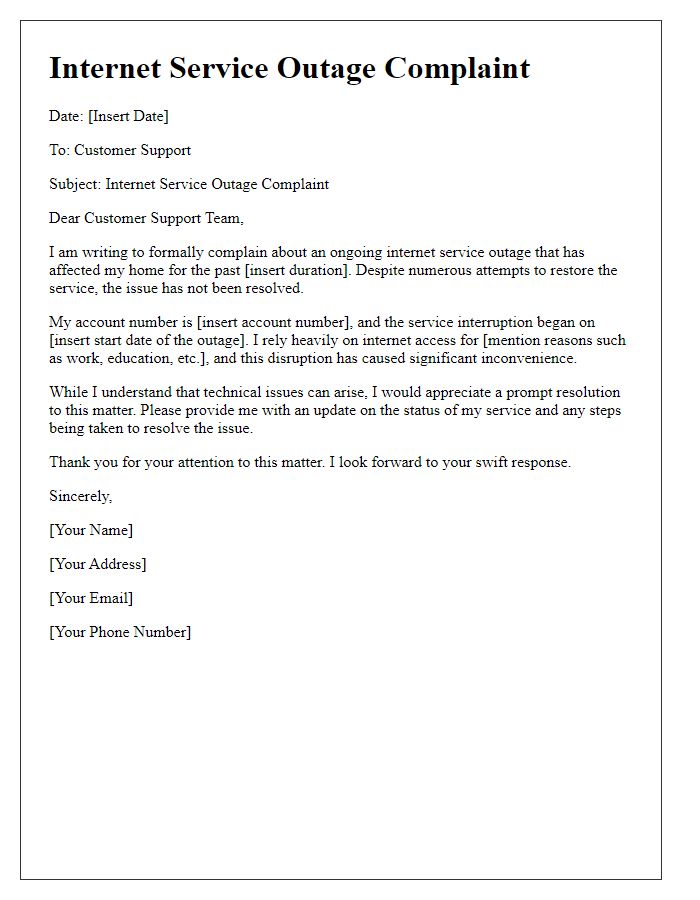
Letter template of internet service outage complaint for billing adjustment.
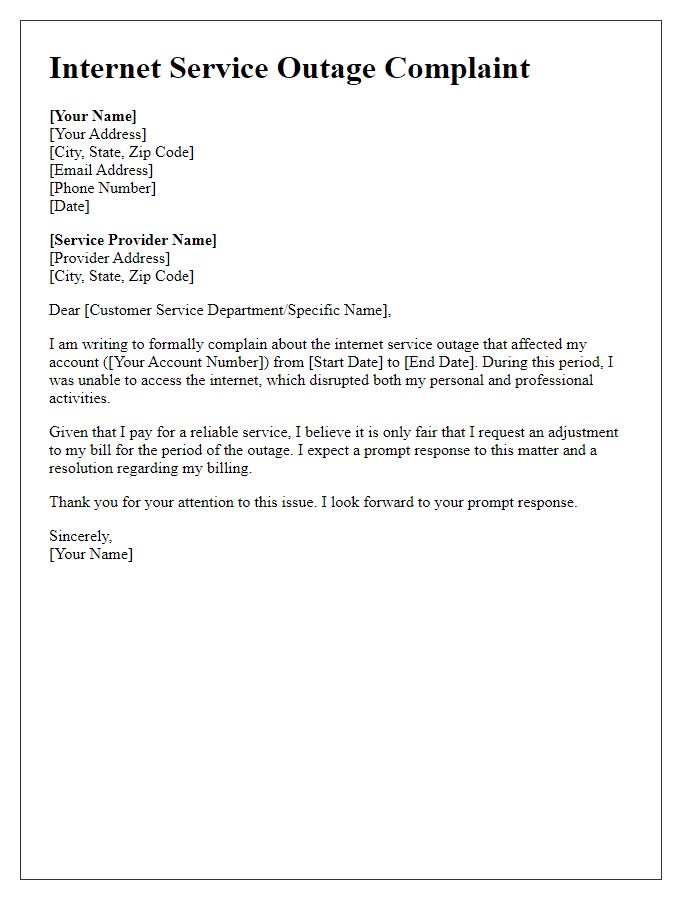
Letter template of internet service outage complaint for service credit request.
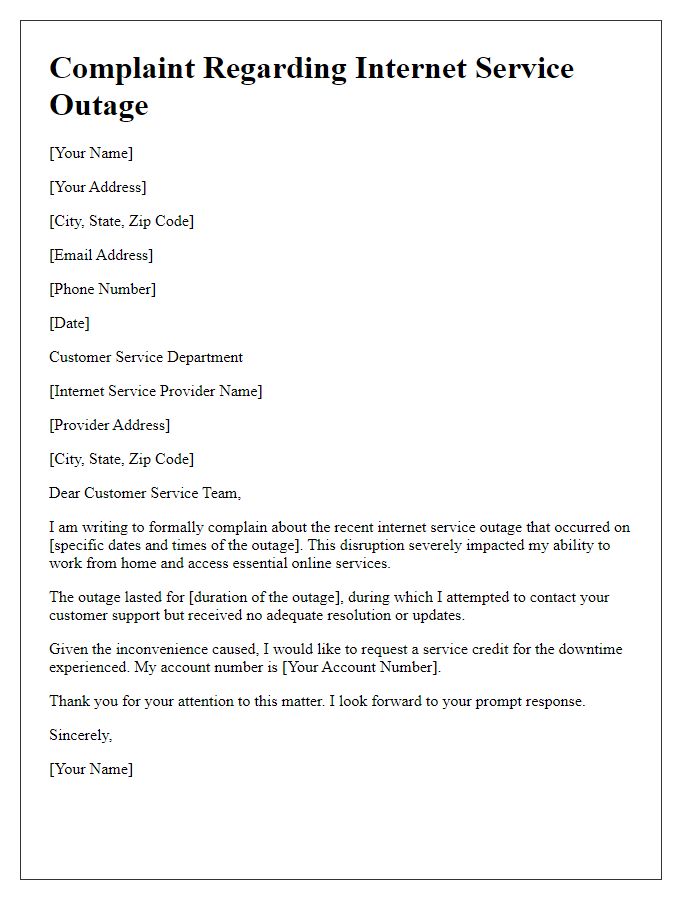
Letter template of internet service outage complaint for recurring issues.
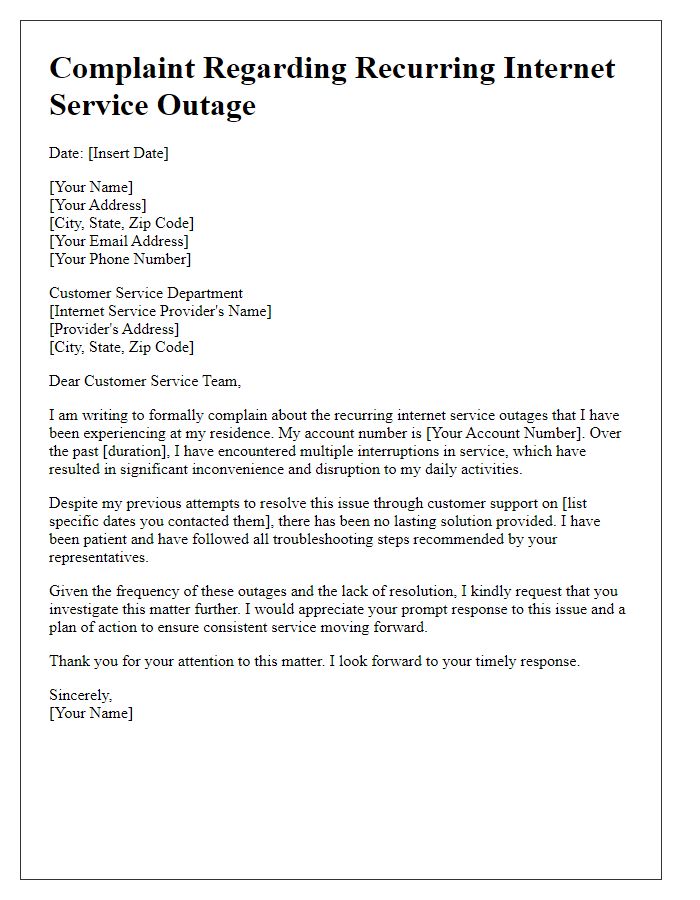
Letter template of internet service outage complaint addressing technician delays.
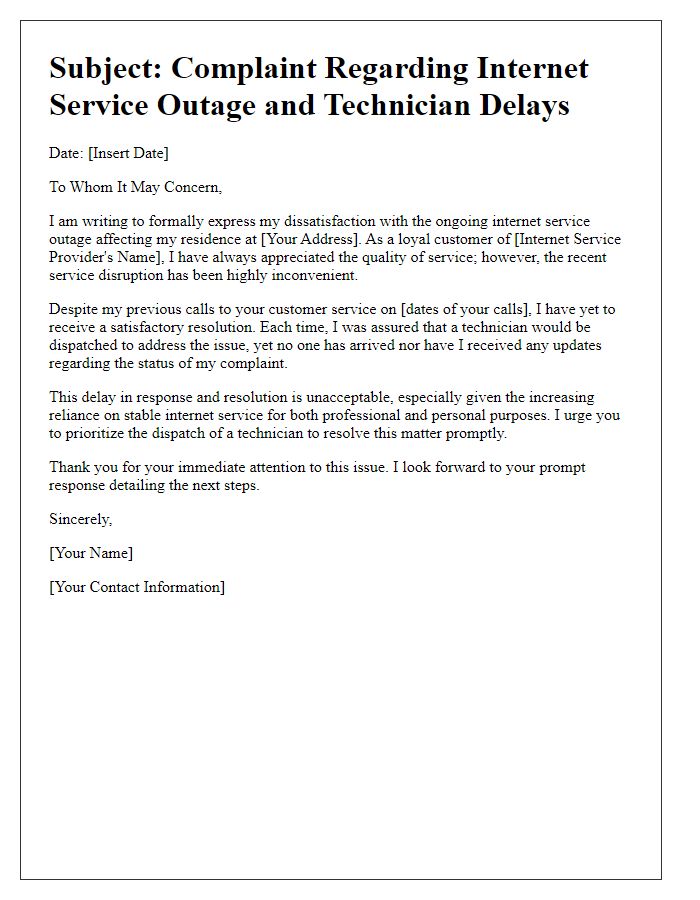
Letter template of internet service outage complaint regarding poor customer service.
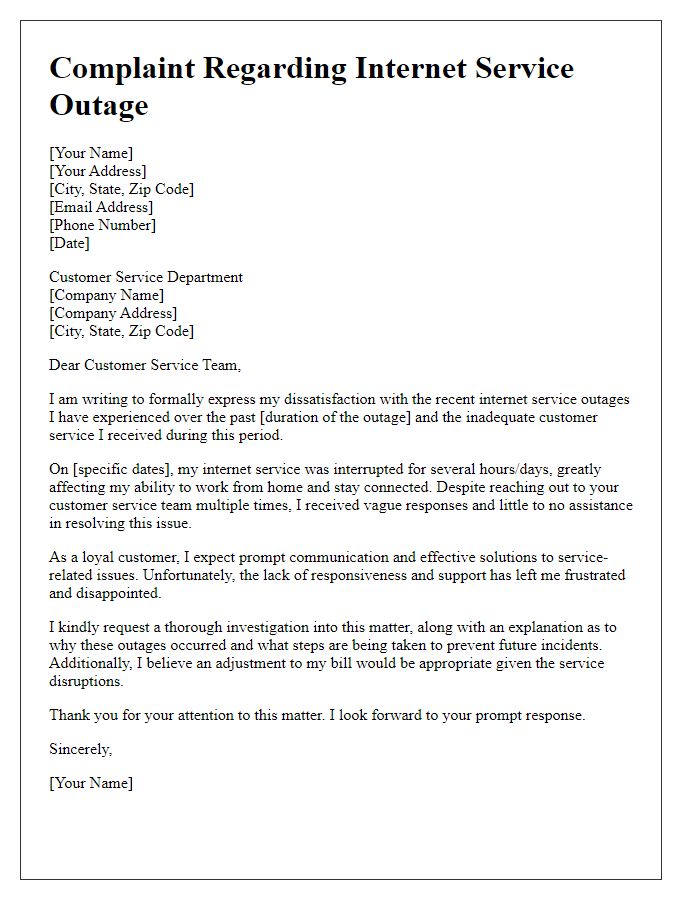
Letter template of internet service outage complaint for service plan review.
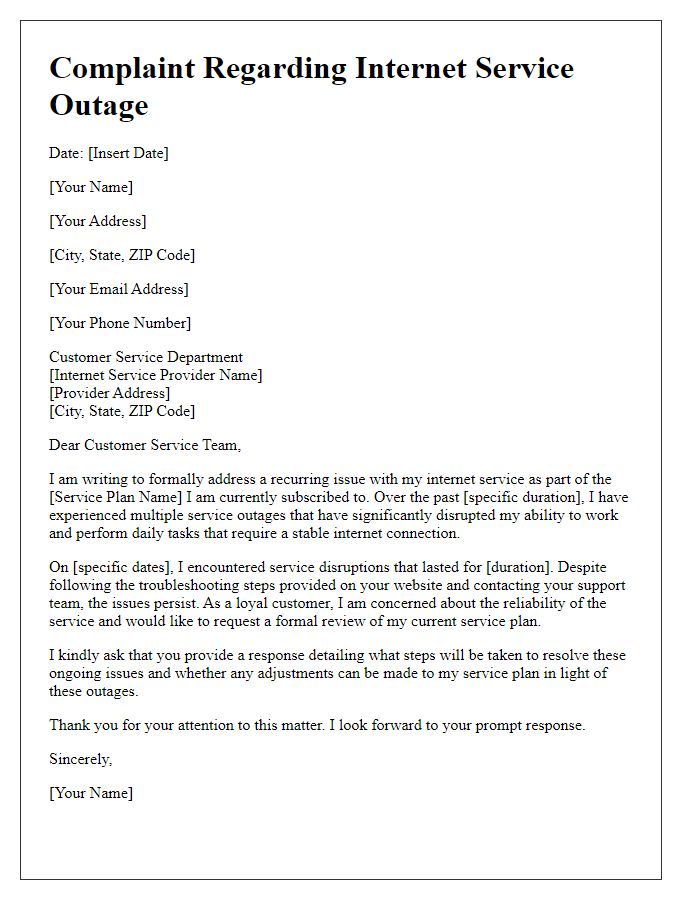
Letter template of internet service outage complaint requesting timely updates.
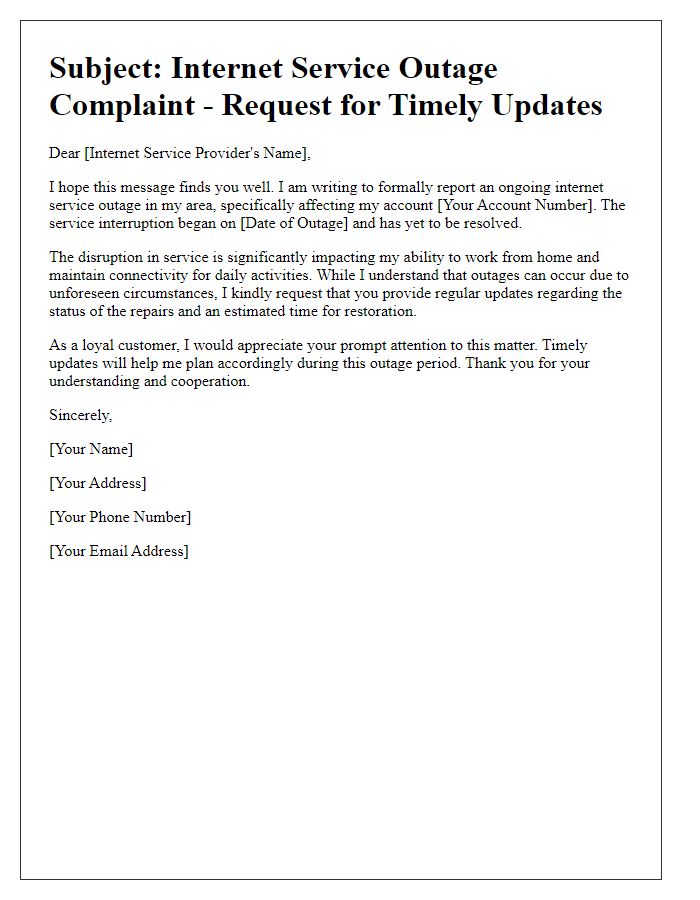
Letter template of internet service outage complaint emphasizing urgency.
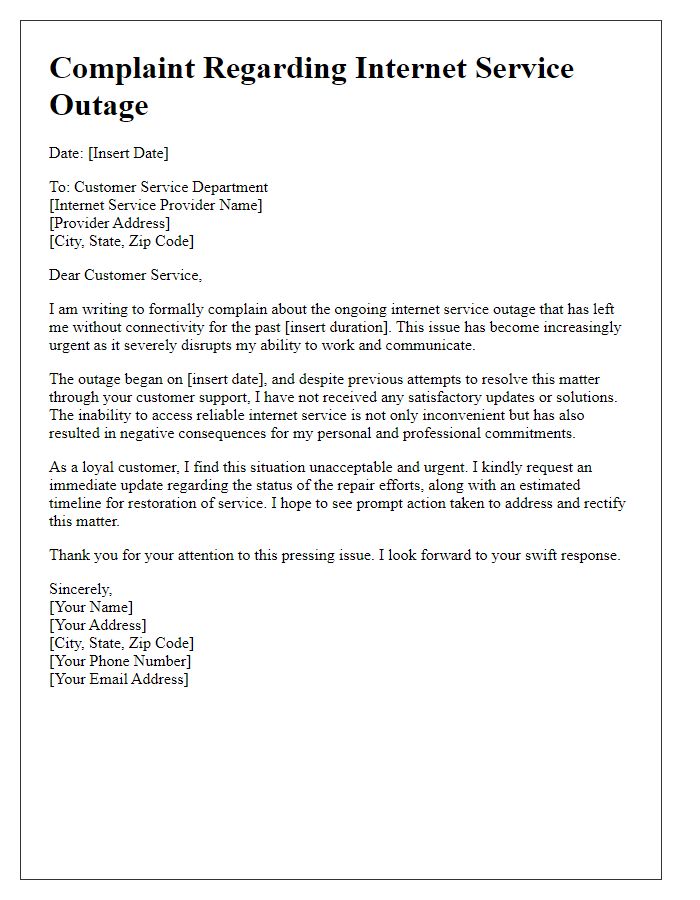

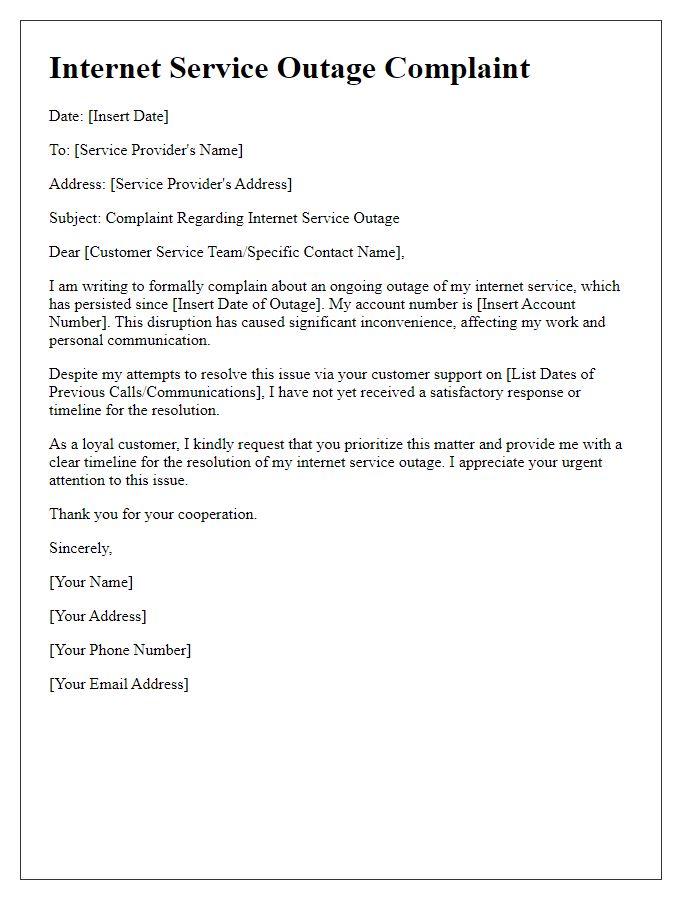

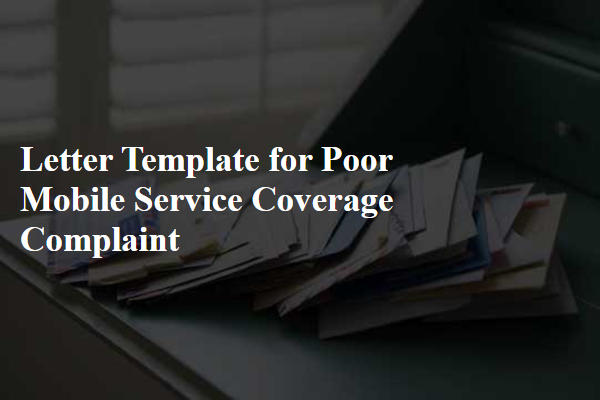
Comments